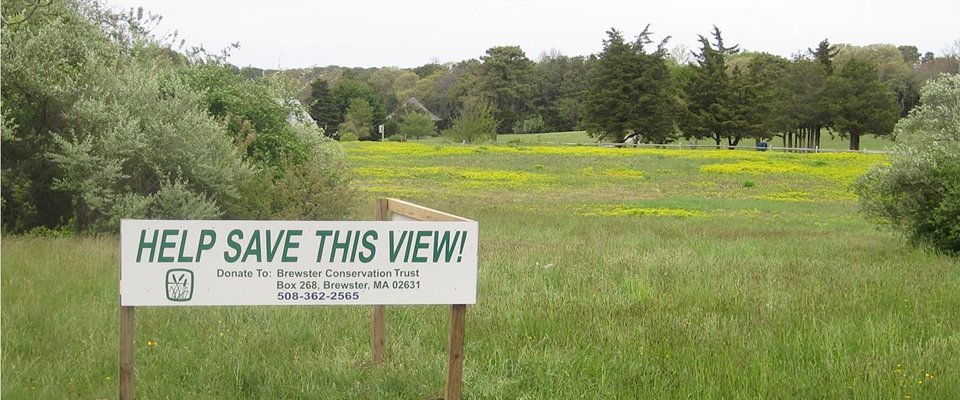by Mark H. Robinson, The Compact of Cape Cod Conservation Trusts, Inc. March 2016
If you have ever thought about preserving your land, now is the time to act. Congress renewed a remarkable piece of tax legislation, enabling private landowners to reap enhanced incentives for donating permanent conservation restrictions (CRs) on their properties.
A primer on these restrictions: you do not give up title to the land; you still own it; you can sell it or give it to heirs; you agree to relinquish the right to build houses on some or all of it, or agree to preserve resource areas (such as buffer zones to wetlands or a scenic view); you negotiate the terms of the CR to retain your customary uses or future needs; you do not need to allow public access; the CR must be done in perpetuity to receive tax breaks; some outside entity must hold the CR, usually a Town ConsCom or a non-profit land trust; the holder has a right to monitor the land annually and enforce the terms.
The new tax law accelerates and extends the tax benefits. A CR donation provides a bigger tax break each year and extends the length of time to enjoy it. Previously, CR/APR donors could only deduct a maximum of 30 percent of their income each year for six years to use up the deduction. Often for lower-income taxpayers, the deduction (difference between the value of the land with and without the restriction) might have been too large to consume as a six–year deduction.
Now, completed CR will allow donors to deduct 50 percent of their income each year for 16 years. The extra ten years should help to use up all or most of the deduction. You might not be leaving some of the deduction “on the table” as before.
One example: a landowner with annual income of $100,000 has a property worth $1,000,000. She donates a CR to the local land trust on the property. She keeps title and privacy and management control, but extinguishes certain development rights, such as subdivision potential. The property still has some value as part of her estate, say, $200,000. The difference of $800,000 is the charitable deduction for federal income taxes. Under the old CR tax rule, this deduction would provide $45,000 in saved income taxes over six years. With the new rule, she will have $200,000 in saved taxes over 16 years. Such is the potential power of the new rule. Qualified farmers can deduct the $800,000 in fewer years, owing to the 100% deduction rule.
Qualified properties can also receive up to $75,000 in a state income tax refundable credit for CR donations or bargain sales.
The Town benefits as well from CR donations. The land stays on the tax rolls, though usually at a lower value. The Town is not responsible for maintaining the land and the costs thereof. The community enjoys the retention of open space without having to buy it. The Selectmen have discretion to approve or reject each application for a restriction, based on the significance of the parcel and the negotiated terms to protect it.
Many landowners wish never to develop their property and argue the town assessor should not treat their land for its subdivision potential. But the assessor is bound by law to value it for its “highest economic use” without regard to intention. A CR enables the owner to express his intentions legally and obligates the assessor to consider a reduction. And any reduction does not result in “lost” tax revenue; it simply shifts it imperceptibly onto all other properties.
Mark H. Robinson has served as the Executive Director of The Compact of Cape Cod Conservation Trusts since 1986. He has guided over 200 conservation restrictions to completion. Contact mark@thecompact.net.

